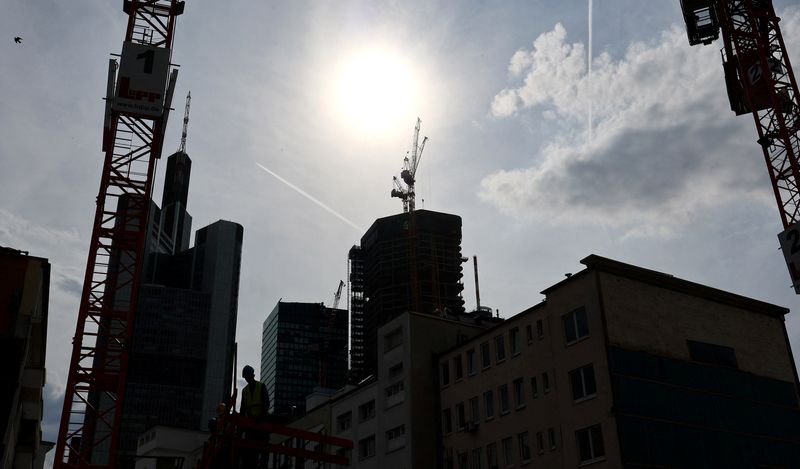BERLIN (Reuters) - German housing prices fell by the most since records began in the second quarter as high interest rates and rising materials costs took their toll on the property market in Europe's largest economy, government data showed on Friday.
Residential property prices fell by 9.9% year-on-year, the steepest decline since the start of data collection in 2000, the federal statistics office said. Prices fell by 1.5% on the quarter, with steeper declines in larger cities than in more sparsely populated areas.
In cities such as Berlin, Hamburg and Munich, apartment prices fell by 9.8% and single and two-family house prices dropped by 12.6% on the year.
For a decade, low interest rates have fuelled a property boom in Europe's largest real estate investment market. A sharp rise in rates and increasing construction costs have put an end to the run, tipping a string of developers into insolvency as deals froze and prices fell.
Building permits for apartments in Germany declined 31.5% in July from a year earlier, the statistics office disclosed on Monday, as construction prices rose by almost 9% on the year.
Germany aims to build 400,000 apartments a year, but has struggled to meet the goal.
German housing industry association GdW on Friday sounded the alarm over the situation calling for government support for construction companies.
"The construction crisis in Germany is getting worse day by day and is increasingly reaching the middle of society," GdW, which represents around 3,000 housing companies nationwide, said in a statement.
GdW called for a cut in value added tax (VAT) to 7% from the current level of 19% for affordable rentals and government funding loans with a 1% interest rate to support companies.
The government is scheduled to hold a summit with the industry on Monday to discuss the situation.

GdW and the Haus&Grund owner's association said they were boycotting the summit as they had too little influence on its agenda.
The German cabinet plans to present an aid package for the industry by the end of month after announcing plans to promote the construction sector, including reducing regulatory and bureaucratic requirements.